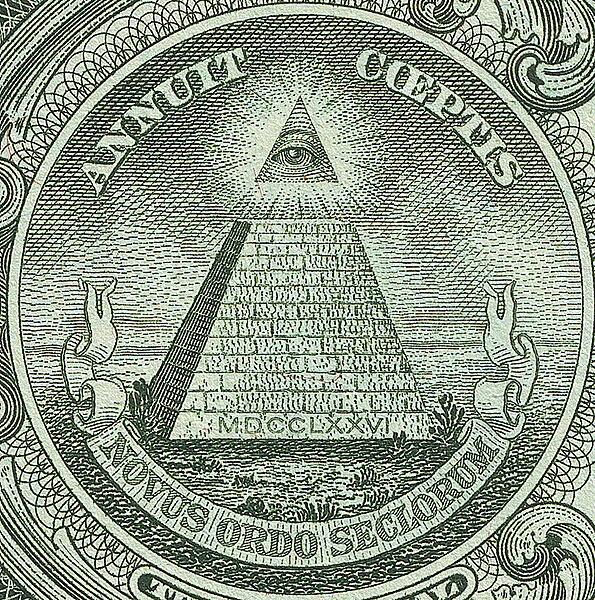A conspiracy theory is an explanation for an event or situation that asserts the existence of a conspiracy by powerful and sinister groups, often political in motivation, when other explanations are more probable. The term generally has a negative connotation, implying that the appeal of a conspiracy theory is based in prejudice, emotional conviction, or insufficient evidence. A conspiracy theory is distinct from a conspiracy; it refers to a hypothesized conspiracy with specific characteristics, including but not limited to opposition to the mainstream consensus among those who are qualified to evaluate its accuracy, such as scientists or historians.
The Eye of Providence, as seen on the US $1 bill, has been perceived by some to be evidence of a conspiracy linking the Founding Fathers of the United States to the Illuminati.
The Warren Report
Third Reich Nazi anti-Semitic propaganda poster entitled Das jüdische Komplott ("The Jewish Conspiracy")
Stephan Lewandowsky is an Australian psychologist. He has worked in both the United States and Australia, and is currently based at the University of Bristol, UK, where he is the chair of cognitive psychology at the School of Psychological Science. His research, which originally pertained to computer simulations of people's decision-making processes, recently has focused on the public's understanding of science and why people often embrace beliefs that are sharply at odds with scientific evidence.
Lewandowsky in 2016




